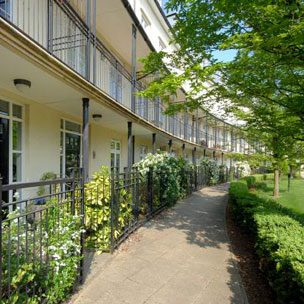TYLER MORTGAGE MANAGEMENT - INDIVIDUAL EXPERT ADVICE
Market Comment
July 2010.
Mortgage Market Update.
In the last month the Government introduced their emergency budget which has been much reviewed and debated elsewhere so I do not intend to dwell on it for too long.
Capital Gains Tax. The increase was less severe than trailed and at 28% is unlikely to be the key factor for any higher rate tax payer making a decision to enter the investment property market. It’s worth noting though that there is some potential discomfort for basic rate taxpayers from the new CGT rules. A taxpayer’s capital gains will be added on to their earned income when assessing if they are basic rate taxpayers for the purposes of CGT. So a property investor whose income and gains exceed around £45,000 in an individual tax year will be expected to pay 28% rather than 18% CGT.
Stamp Duty. The budget confirmed that the previously proposed new 5% rate of Stamp Duty would be introduced for residential property purchases above £1m from April 2011. As there has been an increasing encouragement from some tax advisors to develop more creative opportunities for avoidance this might have an adverse effect on the actual level of tax collected. The new government suggested that they would examine whether enough loop holes had been closed to ensure the effectiveness of the tax regime in this area.
Cuts in Government Departmental Budgets. The suggested cuts of 25% to 40% in governmental budgets in many areas is bound to affect the unemployment market and have a knock on effect on the housing market over the next few years. Already the confused announcement on the cutting of the School improvements programme shows how severe the cuts are likely to be. Clearly the Government hopes that a recovering economy with growing demand for jobs in the private sector will balance out the loss of jobs in the public sector. However with the level of cuts that are likely to come in the next 2-3 years and the pain associated with it, it does seem reasonable to suggest that the effect will keep housing demand dampened and house prices fairly static (which in itself is no bad thing after the recent peaks in the market defying a low inflation, low interest rate economy). All this suggests the key thing all of us involved in the housing and mortgage market are hoping for, increasing transaction levels, will be slow to develop – which, whilst understandable, is disappointing.
Of course with a tough period ahead for the economy and no massive rise in inflation expected, the good news is interest rates should remain low and encourage all of us to pay down debt and spend more in the high street and on 8th July The Bank of England, once again decided that no change in interest rates was the best way forward and for a further month, at least, we are going to enjoy a 0.5% Bank of England Base Rate, the 17th month in a row this will be the case.
The last month has been dominated in the press with World Cup news and of course the constant references to 1966 and past England Glory. I do think the long term change in borrowers circumstances that has brought us to a position where so many individuals are weighed down with too much non-mortgage debt and are struggling in 2010 can also be laid at the door of 1966.
It was in 1966 that the UK’s first credit card was launched by Barclaycard which then led to the launch of Access (as you may recall it was our “flexible friend” ) a sluggish 6 years later in 1972.
Would the UK economy be better off today if Credit Cards had never been introduced? We will never know. The effects of too much credit card debt, falling house prices and less generous mortgage lenders means in a time of record low mortgage rates some borrowers are unable to remortgage their expensive short term debt to get their payments down to a manageable level. The most popular credit cards advertise close to 30% APR and yet borrowers still seem to see this as good value if they cannot increase their mortgage balances at today’s sub 5% interest rates as an alternative way of raising cash. Interestingly (West) Germany who lost the 1966 final has a far more robust economy and has among the lowest usage of Credit Cards in the E.U. as they prefer to pay by cash or debit card (and they have won 3 World Cups of course).
Still Credit Cards do look good value compared to some options, whilst browsing my paper on the train last week I came across an expensively produced advert for loans of up to £500 at the advertised APR of 303% - no wonder the advert was high quality – a margin of close to 300% over cost of funds looks impressive. All this is available in a market where our clients seek rates of below 3% if at all possible – we live in remarkable times. Recently a long term client contacted me who had fallen victim to these “remarkable times”. His household income had fallen from £200,000+ (where it had been for many years) per annum down to less than £15,000 due to changes in their industry and the state of the economy. Despite this, my clients, in their early 50s, had been servicing a loan of over £500,000 from savings and had decided to sell their valuable home and move to a smaller home and become mortgage-free. In order to achieve this and not have too little space in their new home they also needed to sell their holiday home in Europe which was on the market.
This seemed a sensible and pragmatic way forward, so when they approached their (very large) lender to see if they could transfer a loan of 25% of the size of the one they currently serviced to bridge them for a year or two whilst the overseas home was sold they were shown the door. The mortgage they had was transferable and the rate was around 1.5% so you can see how they would be keen to transfer it. I spoke to a Director of the lender concerned and he said there was no way they would help even though the loan was reducing by 75% and the Loan to Value would drop from 60% to under 25%, because of their new affordability rules (even though they currently “afforded” a loan of 4 times the amount requested).
So we arranged a new loan based on these circumstances with a 3 year fixed rate and all the interest funded for the 3 years through a slightly larger loan (put back on deposit with the lender) with a helpful, understanding, Building Society. Marvellous news for us, the Building Society and our clients (who complete next week) but what a waste of a relationship from the larger original lender who could have simply improved their position, charged a reasonable fee and kept a happy borrower who would recommend them to others. If they had been a borrower of the Building Society and approached them with the same proposition (reduction of debt and Loan to Value) the Society would have agreed this in a heartbeat.
Years of experience and loyal connections allowed us to develop this bespoke solution for our client – we might be able to do the same for you. For more personalised comment and for advice about your own mortgage requirements do please pick up the phone and call one of our team on 020 7930 7242 or email one of us having read our profiles on the "about TMM" pages on this site.
Your home may be repossessed if you do not keep up repayments on your mortgage.
You may have to pay an early repayment charge to your existing lender if you remortgage.
A typical fee for arranging your mortgage is 1.5% of the loan amount.
Simon Tyler, 12th July 2010.
| BACK TO THE TOP |
Client Comments
“I have known Simon for 30 years. He is a thoroughly dedicated professional, and I can guarantee for any prospective client, that you will not be disappointed. He has assisted me with some tricky requests for mortgage assistance and without his help, I would never have been able to achieve my goals. I trust this man wholeheartedly, and suggest that you do the same.”
Tony Eager
International Manager – Security Industry.
“I have dealt with Simon since 1988 and helped develop IT solutions for his companies as well as receiving excellent personal mortgage advice from him as he built up his companies. Simon is unquestionably and honest and genuine person to both work with as a supplier and to receive unbiased advice from.”
Anthony Roy
Technical Director and CEO, Risk Free UK LTD.
“Simon is an expert in his field. He has provided me with sensible, effective advice on mortgages on numerous occasions.” .
Cary Zitcer
Business Owner in the Security Industry. Dealt with Simon since 1980.
“Over the years Simon has advised us on many occasions with regard to our mortgage requirements. Simon stands out from the crowd in this industry for his sheer depth of knowledge, long established relationships with mortgage providers, and general gravitas. Despite several aborted property purchases, Simon has always come up with the goods when we most needed it, and most recently, he assisted us in the purchase of what I can confidently say is my dream home, against stiff competition. Simon is also a great industry commentator.”
Alison Cork
Journalist and TV Presenter.
“I have worked with Simon for over 20 years and he has always come up with good solutions and products that are not generally available.”
Jonathan Lewis
Partner OLSWANG LLP.
“If you're buying a new home or ever need to borrow money cheaply and reliably, through a new mortgage, a bank loan or any other financial instrument, Simon has always been one of the best experts – and commentators.”
N.R.
Journalist and Broadcaster.
| BACK TO THE TOP |
Your home may be repossessed if you do not keep up repayments on your mortgage.
To discuss your current or future mortgage requirements please call 020 7930 7242.
A typical fee for arranging your mortgage is 1.5% of the loan amount.


